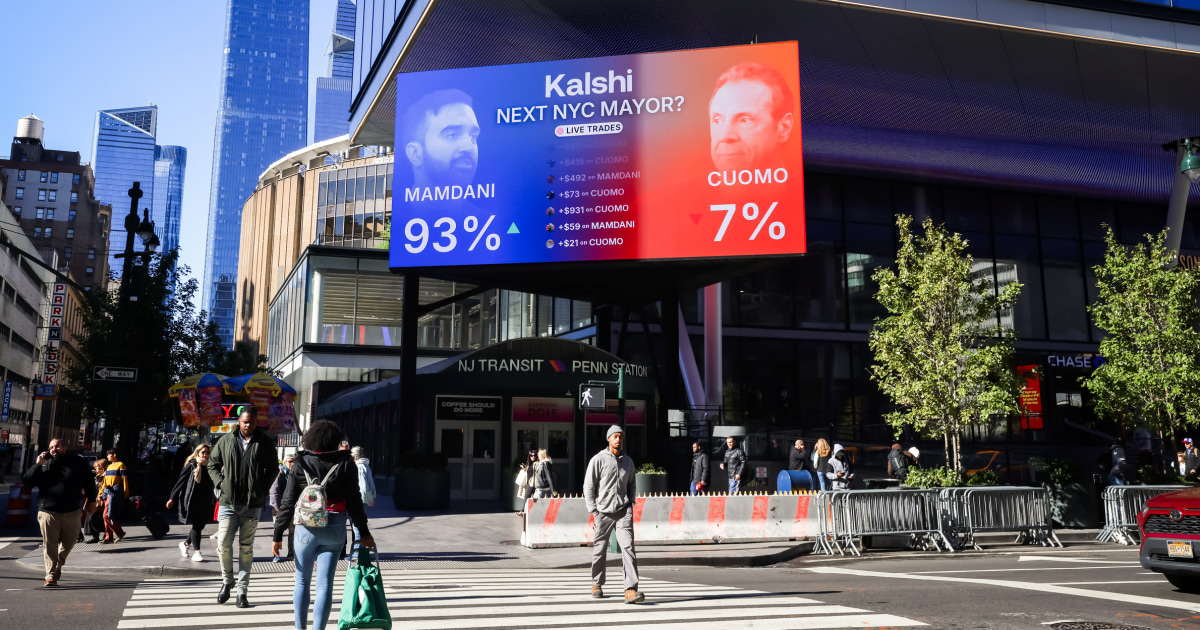Google is set to incorporate prediction market odds from online betting platforms Kalshi and Polymarket into its Google Finance tools, a move announced late Thursday that could expose these controversial services to millions of users amid ongoing legal battles.
The integration, detailed in a Google blog post, aims to let users query future events like economic forecasts directly through search, drawing on crowd-sourced probabilities from bets placed on these platforms. "Just ask something like ‘What will GDP growth be for 2025?’ directly from the search box to see current probabilities in the market and how they’ve changed over time," the company stated.
Kalshi and Polymarket position their services as event contracts regulated like commodities, not traditional gambling, allowing them to sidestep many state-level restrictions. However, this stance has drawn sharp criticism from lawmakers and regulators who argue it masks what is essentially sports betting and other wagers.
Six U.S. senators highlighted these concerns in a September 30 letter to federal regulators, warning that such platforms "can avoid myriad state [gaming] laws, including licensing and background investigations, minimum age requirements, federal anti-money laundering rules, and consumer protections such as addiction warnings and integrity monitoring."
Polymarket, currently limiting U.S. users to view-only mode, plans to launch full betting services in the coming weeks, according to company announcements. Residents in Australia and France face similar restrictions on active participation.
Kalshi, regulated by the Commodity Futures Trading Commission (CFTC), claims it can operate nationwide, even in states banning sports betting. This has sparked lawsuits from state attorneys general and anti-gambling groups, with cases progressing through courts that could reshape the company's U.S. footprint.
Legal uncertainties extend to allegations of market manipulation. A recent paper from Columbia Business School researchers, published Thursday, estimated that up to 25% of Polymarket's trading volume might stem from users artificially inflating activity by trading contracts with themselves.
The Biden administration's CFTC previously expressed worries in an appeal, stating that "conduct designed to artificially affect the electoral process could manipulate the market and incentivize the spread of misinformation." This followed a lower-court ruling favoring Kalshi.
Disputes over bet resolutions have also plagued the platforms. On Polymarket, a wager on whether Ukrainian President Volodymyr Zelenskyy would wear a suit in public by July 2025 led to arguments over definitions. Kalshi faced backlash when it delayed payouts on bets regarding former X CEO Linda Yaccarino's departure, with users accusing the company of altering criteria to require a named replacement. Both firms denied wrongdoing.
Kalshi escalated its fight last month by suing New York state regulators, alleging overreach into federal jurisdiction. Representatives for Google, Kalshi, and Polymarket did not respond to inquiries about the integration details or financial arrangements.
Google said the integration of “event contract” sites will allow its users to “ask questions about future market events and harness the wisdom of the crowds.”
The Trump administration's influence looms large in this landscape. Donald Trump Jr., the president's eldest son, advises both Kalshi and Polymarket. In May, the CFTC under Trump dropped a case against Kalshi initiated during the Biden era, paving the way for Polymarket's U.S. re-entry signaled in September.
As regulations ease, valuations have skyrocketed. Polymarket, backed by investors including Peter Thiel's Founders Fund and a venture from 1789 Capital tied to Trump Jr., secured an undisclosed sum in August and up to $2 billion from Intercontinental Exchange in September. This propelled its valuation to about $8 billion, making 27-year-old founder Shayne Coplan the world's youngest self-made billionaire, per Bloomberg's Billionaires Index.
Kalshi, valued at $5 billion after an October round led by Andreessen Horowitz, Sequoia Capital, and Paradigm, benefits from similar momentum. The Trump family's involvement extends further: Truth Social, under Trump Media & Technology Group where the president is the largest shareholder and Trump Jr. serves on the board, unveiled its own crypto-based betting platform, Truth Predict, in October.
Critics fear these developments could undermine event integrity, particularly elections, while proponents tout prediction markets as insightful aggregators of public sentiment. Google’s move places it at the intersection of tech innovation and regulatory friction, potentially amplifying the platforms' reach despite unresolved legal questions.
Looking ahead, court rulings on Kalshi's state challenges and Polymarket's expansion will be pivotal. With the CFTC's evolving stance and high-profile backers, the sector's growth seems poised to continue, though not without pushback from those concerned about gambling's societal impacts.
The integration's full mechanics remain unclear, including whether users will link directly to the betting sites. As Google Finance evolves, this feature could redefine how Americans access probabilistic insights on everything from GDP forecasts to cultural events, blending finance with speculative wagering in unprecedented ways.
Rob Wile, who reported on these developments for NBC News, noted the platforms' global regulatory patchwork, emphasizing their operation in legal gray areas worldwide.
In summary, while Google champions the 'wisdom of the crowds,' skeptics warn of risks ranging from manipulation to weakened consumer protections, setting the stage for ongoing debates in Washington and beyond.
